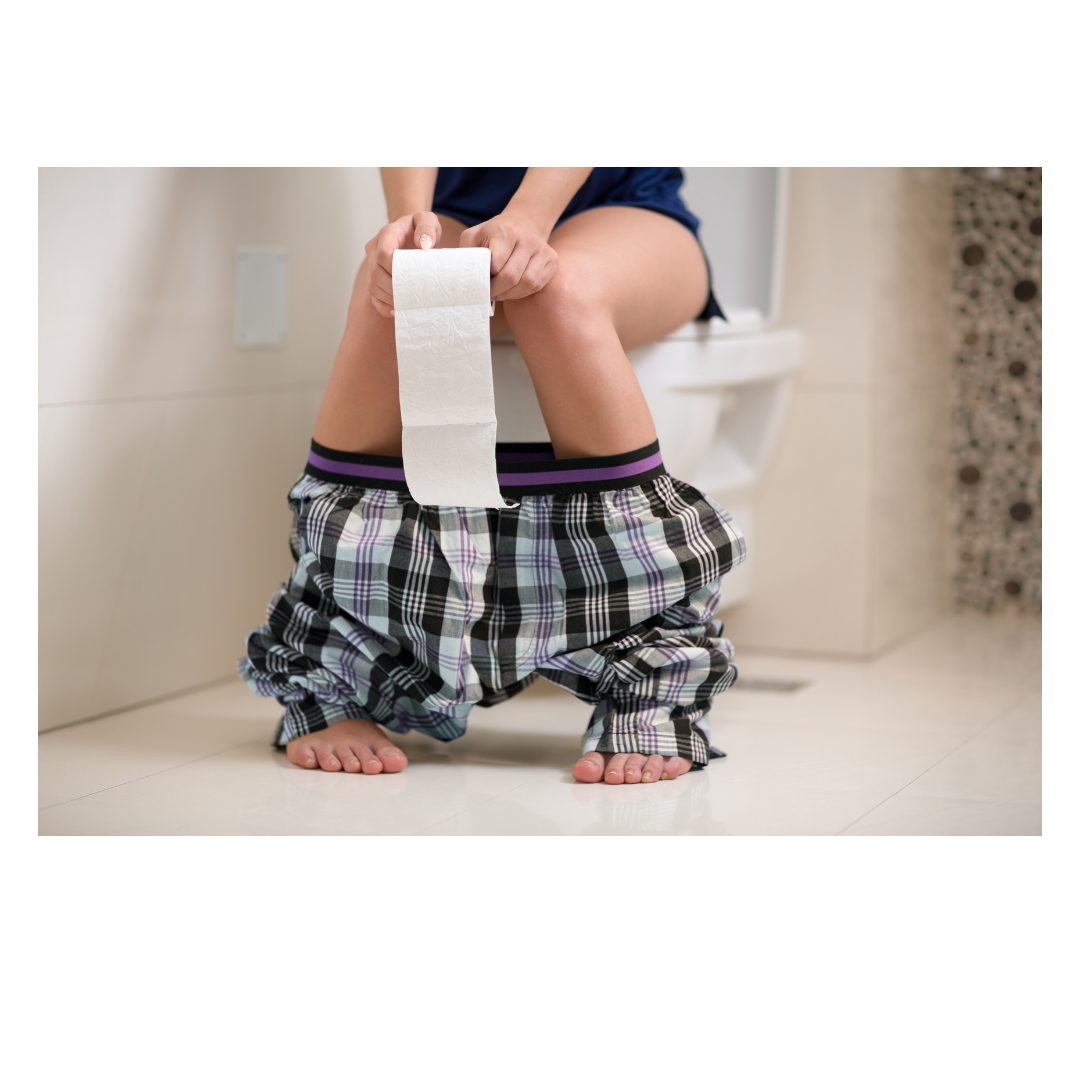
Let’s talk poo, or ‘stool’. It is not usually a frequent topic of discussion around the dinner table, but it is something that concerns everyone. How often is too often? Am I constipated? We are here to answer these questions.
The good news is that ‘normal’ is different for everyone. Some people go 3 times a day, while others go 3 times a week. The main thing to note is if your pattern has changed. Particularly if you are over the age of 50. There can be some justified reasons for this, such as travelling or dietary intake, but if these changes haven’t occurred, you should start by speaking to your GP.
The consistency of your stool should be like a ‘soft sausage’ or ‘corn’. As long as it is not difficult to open your bowels, and you don’t have to strain, then you will be right where you need to be.
If you are experiencing loose, frequent stools, it may be a sign of diarrhoea. This can occur if you have picked up an infection (bacterial or viral), or have had too much fibre (especially pear juice), a fatty meal or certain medications can lead to loose stools.
Constipation (small, hard to pass stools) can be caused by a lack of dietary fibre, insufficient water or medications, as well as a lack of physical activity. In Australia, 1 in 7 people suffer from chronic constipation.
Let’s take a look at some things that can affect your bowels:
- Your diet, particularly if you are vegetarian/vegan, you are more likely to have more regular bowel motions, due to a higher intake of dietary fibre.
- What is the colour? It is always important to take a look in the toilet bowl, to see if there are any changes. One of the ‘red flags’ that we look for is blood (bright red can mean fissures or bleeding in the anus/rectum, dark red is more concerning, as it can indicate bleeding further up the GI tract). Eating brightly coloured foods, such as beetroot, can also change the colour.
- Light or pale coloured stools can be an indication of a bile duct problem, so should always be discussed with your doctor.
- Black stools can occur if you are taking an oral iron supplement, or if you have eaten blueberries, or other dark coloured foods.
What should we do to optimise our bowel habit?
- Drink enough water – people often think about fibre, but forget to include enough water. You should be aiming for around 8 cups a day. A good check is to see what the colour of your urine is, ideally it should be a pale, straw colour.
- Have enough fibre – 25-35 g per day is the aim for most people. Good, high-fibre foods include fruit, vegetables, wholegrains, nuts and legumes. If you are not used to having much fibre, it is a good idea to gradually introduce more to reduce adverse effects such as bloating.
- Regular exercise – gentle exercise helps to promote regularity. Going for a 20-minute walk can be helpful to get your bowels moving.
- Don’t delay! If you get the urge to go, then go. If you wait, the water will be reabsorbed and it will be harder to go next time, as your stool will have become drier and harder.
- Get into a routine. You can train your bowels to open at a similar time each day. Try sitting on the toilet for 10 minutes after breakfast, as this is when you are most likely to open your bowels. It is important to be relaxed.
If you are concerned about your bowel habit, get in touch with us or speak with your GP.
